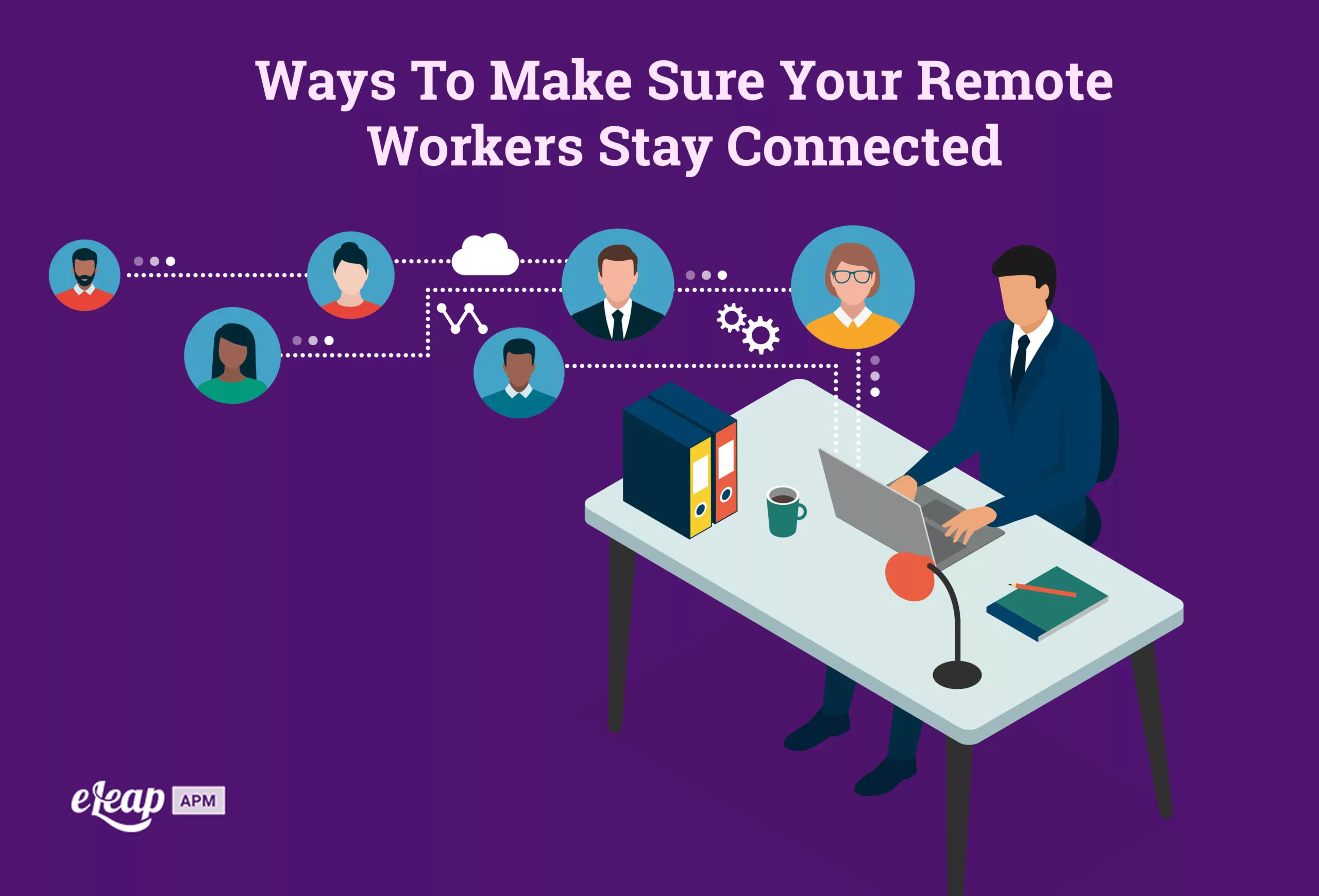Ways To Make Sure Your Remote Workers Stay Connected

Remote work is the new normal. Even after the pandemic, many organizations are choosing to allow their employees to remain working remotely, or at least enabling them to work from home part of the time. Remote work has been seen to have a number of advantages for organizations. Namely increased productivity. But if remote workers aren’t managed correctly, they can have trouble feeling like part of the organization or maintaining the culture of the company. The increase in the number of remote workers means that there now needs to be more of a focus than ever on keeping remote workers connected and maintaining employee engagement. But many of the conventional methods that used to be used are no longer applicable to companies with remote workers.
It’s important that you create an environment where your employee’s wellbeing is looked after, both in-office and remote. Here are some ways to ensure that remote employees stay connected with your organization, team, and company culture.

Encourage Group Activities For All Employees
Making sure remote employees feel like part of the team is critical. One of the best ways to do so is to set up group activities for both remote and in-office employees to enjoy. This can help to build a sense of teamwork and comradery, as well as keep out-of-office employees connected with the rest of the workforce. It’s important that your remote employees never feel isolated, alone, or as though they aren’t as much part of the team. If this happens, it can have a significant impact on productivity and, ultimately, retention. Remote employees who feel part of the team and culture can be extremely productive. But those who don’t are much more likely to quit.
Set up activities that include like-minded interests and connections between your workforce members. You could try employee clubs that are conducted via Zoom meetings, like book clubs for example. Alternately, you could do in-person clubs once a month, as long as all your remote employees are able to come into the office every once in a while to partake.
Schedule Remote Work Events
Company activities and events that include your remote workers are critical for making them feel like part of the team. You can create remote work events that everyone can enjoy. Remember, it’s easy for your in-office employees to join in on remote work events such as game night. You can even try having a newsletter that’s delivered remotely and includes stories or anecdotes about your remote employees.
Emphasize Gratitude and Rewards
It’s just as important that the work your remote employees do is as highly recognized as those of their in-office cohorts. Organizations that support and reward their employees for a job well done are much more likely to perform to a high level. It can be much easier to forget to praise your employees when they aren’t physically in the office. When you see your workers on a day-to-day basis, remembering to reward them is more at the forefront of your mind. Make a conscious effort to emphasize gratitude for your remote workers and praise and reward them when they do a good job. It’s also important that you encourage employees to communicate praise and gratitude to one another. You could try setting up a software system that enables in-office and remote employees to communicate their praises to one another easily through a remote platform. Most software communication platforms enable employees to show praise for one another, such as by giving virtual high fives.
Make Time to Check-In
Don’t let your remote workers feel left out by never checking in with them. It can be easy to forget to check how your remote workers are doing because you don’t interact with them in person every day. But check-ins for remote workers can be even more important than for those who are in the office. This is because they can feel disconnected and as though they aren’t able to reach out for help or assistance when they need it. Remote workers can also suffer from burnout because working from home can make it difficult to step away from work and take time to themselves on evenings and weekends.
Support Employee Hobbies
Your employees have lives outside work, and often, supporting their hobbies is a great way to build connections. Many employees will likely enjoy the same things, and by facilitating events that encourage them to partake in their joint interests, you can show your commitment to their personal growth. Even going as far as to encourage your employees, remote workers included, to discuss their hobbies and interests outside of work can have a huge impact on connection and culture.
Create Remote Work Specific Incentives
Your in-office employees probably have some incentives that benefit them specifically, like commuting reimbursements or free coffee in the office. But remote workers miss out on these incentives, which makes them feel left out or less important than your in-office employees. Create incentives tailored specifically towards those who work from home. For example, you could consider reimbursing remote workers for things that they need for their home office. Or maybe offer them gift cards that they can apply towards things they use to work from home.
Remote work isn’t going anywhere any time soon. Many organizations have been clued into the benefits of enabling employees to work from home, at least part of the time. Even though remote work has a lot of benefits, it can also go wrong if it isn’t managed properly. It’s essential that remote workers feel just as included and part of the team and company culture as everyone else. Take some time to ensure that your remote work regime for at-home employees is structured properly and that you include activities and events that create a culture of inclusion for your remote workers.